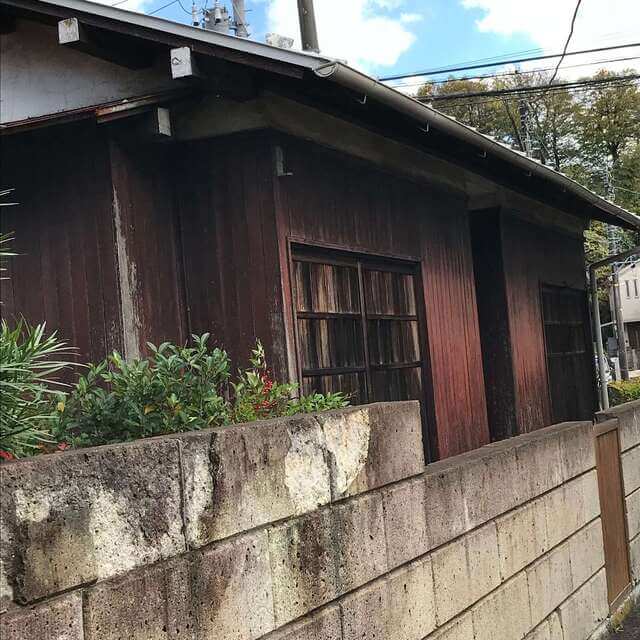Japan's Abandoned Houses - AkiyaToday in 2018, the number of abandoned house in Japan likely exceeds 10 million. The trend is attributed to a sharp increase of newly built homes during Japan’s period of rapid economic growth, which later became vacant as home owners passed away and their children did not take responsibility for the property. Japan's population is shrinking, with researchers predicting the decrease of about 16 million citizens by 2040, and drop to 88.08 million by 2065. Its residents are also getting older, meaning there are fewer young people trying to take property. In rural areas some local authorities have started to address the problem using projects such as the "Akiya Bank", through which they help to advertise vacant properties and encourage new families to move to the area. However, the dilemma is not limited to rural areas. As the number of empty urban properties rises, nearby residents are getting anxious with the negative effect on the neighborhood appearance and vandalism that can diminish surrounding property values. In Tokyo — where 70 percent of the people live in apartments — more than 1 in 10 homes are empty, Japan Times reported. According to a survey conducted by Japan’s Ministry of Internal Affairs and Communications, in 2013 there were 820,000 abandoned houses in the city of Tokyo, which includes the 23 wards and western suburbs. The figure is expected to soar in the coming decades as deaths outpace births in a super-aging society where more than 1 in 4 people are 65 or older. These include houses that cannot be rebuilt due to construction regulations, homes tucked away behind narrow alleys inaccessible by car, and "stigmatized" properties with histories of suicides, murders and, increasingly common, "lonely deaths" of older tenants whose lives ended in isolation. Additional Problems And SolutionsTo make the situation worse, Japanese superstition makes selling these old homes difficult. Properties associated with suicide, murder, or "lonely deaths" are considered bad luck in Japan, and there's even a website called Oshimaland listing properties (and what happened there), to be avoided. It’s not only homes that are being abandoned. An independent expert study group headed by former Iwate Gov. Hiroya Masuda estimated that around 4.1 million hectares of land — equivalent to the size of Kyushu — is unclaimed, as inheritors opt out of registering properties to dodge taxes. Many of Akiya Bank websites that are set up by local governments and communities list unused land and residences that are still habitable for sale or rent, targeting city dwellers drawn to the idea of country living. But despite many inquiries, the number of signed contracts remains small, according to a study by the Japan Organization for Internal Migration. Sometimes you can find homes for free on some of these websites, with the buyer having to pay only taxes and fees such as agent commissions. Usually it is because the owners do not want to pay tax for the property they do not use, or simply they cannot take care of it anymore. The free houses also usually need major refurbishment because they are old. To make it more attractive for applicants, there are various subsidies and tax deductions available from national and local governments to help with renovating vacant homes, including for such things as seismic retrofitting and improving energy savings. In Tokyo, local governments have approached the problem somewhat differently by involving partnerships with the private sector and NGOs. For instance, the Setagaya Ward offers financial assistance for the renovation of the abandoned homes, with the aim of renting them out to tenants who would otherwise have difficulty finding a home. The government will provide funds to the owners up to 1,000,000 yen per room, who convert single-family homes into an apartment-like housing complex. In addition, they offer subsidies of as much as 40,000 yen a month to owners who let out their properties to single-parent families. This in fact, will also indirectly subsidize rent for tenants. The vacant houses that are not free, prices can range from 10,000 yen to 20 million yen depending on age, location and physical condition of the building. Can Foreigners Buy Property In Japan?Currently, there are no legal restrictions on owning property in Japan for foreigners. They do not need to have citizenship or even a residence visa to buy a house, a piece of land or even an Island in Japan. However, purchasing a property does not qualify the buyer for a Japan residence visa. What You Should Know Before Buying AkiyaProperty dealings are often complex and it is highly recommended you seek independent professional advice. If you are seriously considering purchasing an Akiya, you should find an adviser who knows the applicable national and local rules for taxes and subsidies to help save you money, and make sure the paper work is done properly. One wonders, with the cost of a new apartment in the greater Tokyo area reaching 60 million yen, why there is not so much demand for buying Akiya? Basically, there are three main problems! The first one relates to ownership of the property. In Japan currently, there is no requirement for transfer of ownership to be recorded at the Legal Affairs Bureau. You can look at the property’s tax records to find the owner, but that doesn’t help when the owner is deceased and isn’t paying anymore. So, how can you buy a property when you cannot find the rightful owner? The second issue has to do with the physical condition of the property; very often the buildings are so old and broken-down that a simple refurbishment or even renovation will not be enough. And the third problem that frequently arises is the personal property left at the house. It can cost significant time and money to remove and dispose items such as furniture, television sets, etc., belonged to the prior owner. According to Kaitai Support, a company that specializes in dismantling vacant homes, the cost which depends on several factors including size, age, material and location, can be anywhere from several hundred thousand yen to well over one million yen or more. On the positive side, if all you need is to own a property to start a new life; a piece of land or a building to run your independent business then Akiya can be a good choice. If you are willing to put in the extra effort, you may find a real bargain in an ideal location where you can renovate a vacant house and out of it, design your home the way you like. Furthermore, Japan consists of 6,852 Islands in total of which some still are uninhabited. The availability and affordability of some of the Islands is not news, but if in case you haven’t heard, you can buy an Island in Japan for a cost of a city apartment. Many of the country’s Islands available for purchase are listed on Aqua Styles Website. Things To Consider Before Buying AkiyaUsing a local agent – A local agent, beside handling the legal matters, will also be able to introduce you to contractors and sub-contractors with experience in renovating vacant homes. To start looking for an agent, use this bilingual real estate companies list with different specialties. What to renovate – Depending on the building age and state of deterioration, a vacant property may only require renovation of some features, such as plumbing, rather than a full-scale overhaul. To check things like, the integrity of structural elements, for termite damage, earthquake resistance and insulation, it is important to have a professional opinion. Approximate cost of renovation - Below are rough estimates of renovation costs for select home features provided by Real Estate Japan. Please keep in mind that based on the location of the property, the actual condition of the feature, how much you actually choose to spend on materials, the actual cost may vary considerably.
List of Akiya Banks: Sources
1 Comment
|
Halal In Japan
|
|



 RSS Feed
RSS Feed





